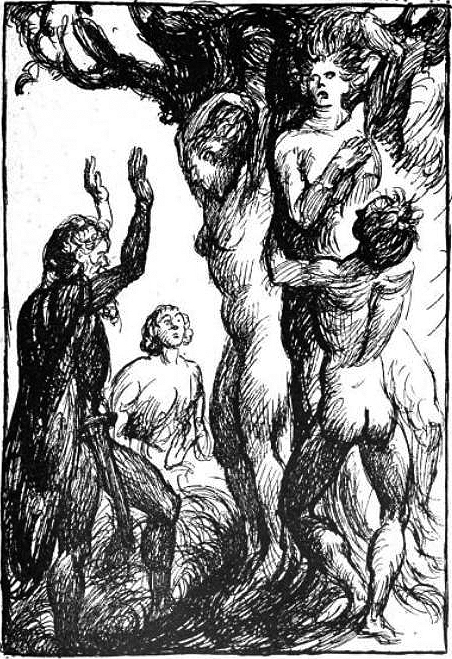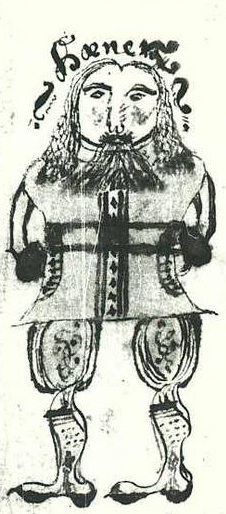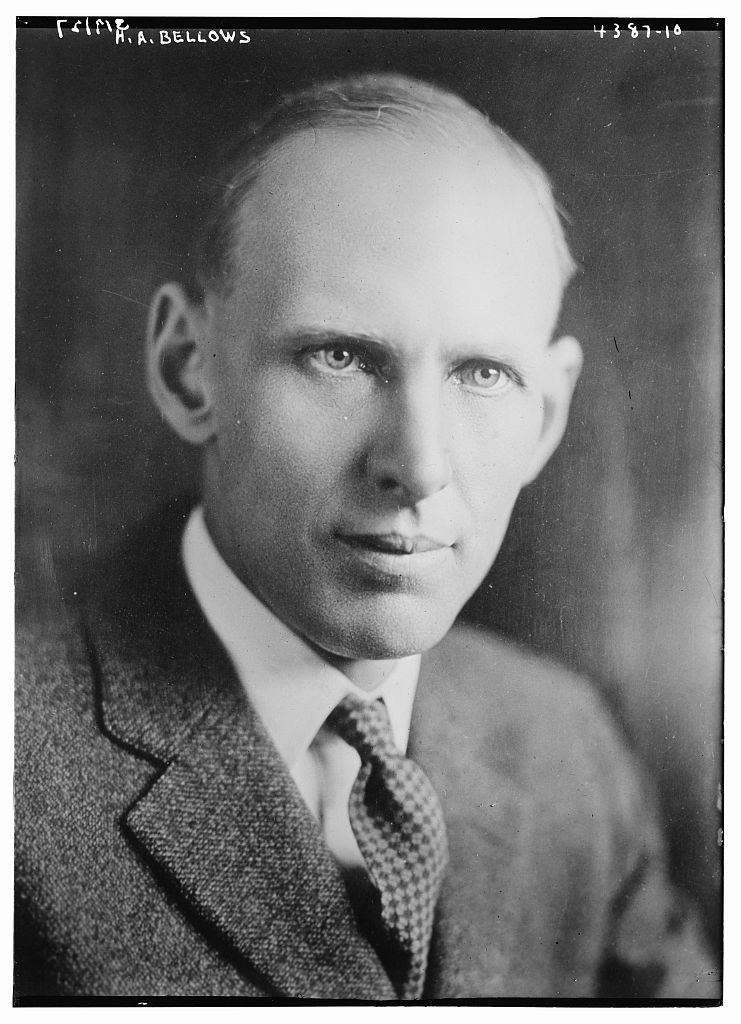|
Embla
In Norse mythology, Ask and Embla ( non, Askr ok Embla )—male and female respectively—were the first two humans, created by the gods. The pair are attested in both the ''Poetic Edda'', compiled in the 13th century from earlier traditional sources, and the ''Prose Edda'', written in the 13th century by Snorri Sturluson. In both sources, three gods, one of whom is Odin, find Ask and Embla and bestow upon them various corporeal and spiritual gifts. A number of theories have been proposed to explain the two figures, and there are occasional references to them in popular culture. Etymology Old Norse literally means "ash tree" but the etymology of ''embla'' is uncertain, and two possibilities of the meaning of ''embla'' are generally proposed. The first meaning, "elm tree", is problematic, and is reached by deriving ''*Elm-la'' from ''*Almilōn'' and subsequently to ("elm").Simek (2007:74). The second suggestion is "vine", which is reached through ''*Ambilō'', which may be rel ... [...More Info...] [...Related Items...] OR: [Wikipedia] [Google] [Baidu] |
Lóðurr
Lóðurr (Old Norse: ; also Lodurr) is a god in Norse mythology. In the poem he is assigned a role in animating the first humans, but apart from that he is hardly ever mentioned, and remains obscure. Scholars have variously identified him with Loki, Vé, Vili and Freyr, but consensus has not been reached on any one theory. Name and etymology The name's meaning is unknown. It has been speculatively linked to various Old Norse words, such as , "fruit, land", , "people" and , "to attract". The Gothic words , "to grow" and , "shape", as well as the German word , "to blaze", have also been mentioned in this context. The metrical position of Lóðurr's name in the skaldic poem , composed in the strict dróttkvætt metre, indicates that it contains the sound value /ó/ rather than /o/. This evidence, while strong, is not incontrovertible and some scholars have held out for a reading. (Lóðurr's name can also be represented or anglicized as , , , , , , , , , , , , , or .) Dani ... [...More Info...] [...Related Items...] OR: [Wikipedia] [Google] [Baidu] |
Odin
Odin (; from non, Óðinn, ) is a widely revered Æsir, god in Germanic paganism. Norse mythology, the source of most surviving information about him, associates him with wisdom, healing, death, royalty, the gallows, knowledge, war, battle, victory, sorcery, poetry, frenzy, and the Runes, runic alphabet, and depicts him as the husband of the goddess Frigg. In wider Germanic mythology and paganism, the god was also known in Old English as ', in Old Saxon as , in Old Dutch as ''Wuodan'', in Old Frisian as ''Wêda'', and in Old High German as , all ultimately stemming from the Proto-Germanic language, Proto-Germanic theonym *''Wōðanaz'', meaning 'lord of frenzy', or 'leader of the possessed'. Odin appears as a prominent god throughout the recorded history of Northern Europe, from the Roman occupation of regions of Germania (from BCE) through movement of peoples during the Migration Period (4th to 6th centuries CE) and the Viking Age (8th to 11th centuries CE). In the modern pe ... [...More Info...] [...Related Items...] OR: [Wikipedia] [Google] [Baidu] |
Mashya And Mashyana
According to the Zoroastrian cosmogony, Mashya and Mashyana were the first man and woman whose procreation gave rise to the human race. Etymology The names are from Avestan, nominally transliterated as ' and ', but like other Avestan words also, spellings (and hence transliterations) vary from manuscript to manuscript. ' may thus also appear as ' or ' or ' (and variants). Originally and etymologically, ' means "mortal being" as Old Persian ''martya'', Persian ''mard'' and even Sanskrit ''martya'' also mean "mortal" and therefore "man". The root in Avesta and Sanskrit for death is ''mar'', ''mr'', "to die". The causative ''mâr'' means "to kill". Its derivatives ''merethyu''/''mrtyu'' means "death"; ''mareta'' and ''maretan'' means "mortal", and then "man, human being" ''mashya''. For more on the etymology of the ''aša'' and ''arta'' variants of these terms, see Avestan phonology. Attestations According to the creation myth as described in the ''Bundahishn'', Ohrmuzd's (Ahura Ma ... [...More Info...] [...Related Items...] OR: [Wikipedia] [Google] [Baidu] |
Norse Mythology
Norse, Nordic, or Scandinavian mythology is the body of myths belonging to the North Germanic peoples, stemming from Old Norse religion and continuing after the Christianization of Scandinavia, and into the Nordic folklore of the modern period. The northernmost extension of Germanic mythology and stemming from Proto-Germanic folklore, Norse mythology consists of tales of various deities, beings, and heroes derived from numerous sources from both before and after the pagan period, including medieval manuscripts, archaeological representations, and folk tradition. The source texts mention numerous gods such as the thunder-god Thor, the raven-flanked god Odin, the goddess Freyja, and numerous other deities. Most of the surviving mythology centers on the plights of the gods and their interaction with several other beings, such as humanity and the jötnar, beings who may be friends, lovers, foes, or family members of the gods. The cosmos in Norse mythology consists of Nine Worl ... [...More Info...] [...Related Items...] OR: [Wikipedia] [Google] [Baidu] |
Wyrd
Wyrd is a concept in Anglo-Saxon culture roughly corresponding to fate or personal destiny. The word is ancestral to Modern English ''weird'', whose meaning has drifted towards an adjectival use with a more general sense of "supernatural" or "uncanny", or simply "unexpected". The cognate term to ''wyrd'' in Old Norse is , with a similar meaning, but also personified as a deity: Urðr (anglicized as ), one of the Norns in Norse mythology. The word also appears in the name of the well where the Norns meet, Urðarbrunnr. Etymology The Old English term derives from a Proto-Germanic term . ''Wyrd'' has cognates in Old Saxon , Old High German , Old Norse , Dutch (to become), and German . The Proto-Indo-European root is meaning 'to twist', which is related to Latin ''vertere'' 'turning, rotating', and in Proto-Germanic is with a meaning 'to come to pass, to become, to be due'. The same root is also found in , with the notion of 'origin' or ' worth' both in the sense of 'connotati ... [...More Info...] [...Related Items...] OR: [Wikipedia] [Google] [Baidu] |
Ask And Embla By Robert Engels
Ask is the active verb for a direct question. Ask may also refer to: Places * Ask, Akershus, a village in Gjerdrum municipality, Viken county, Norway * Ask, Buskerud, a village in Ringerike municipality, Viken county, Norway * Ask, Vestland, a village in Askøy municipality, Vestland county, Norway * Ask, Iran, a village in Mazandaran Province People * Ask la Cour, Danish ballet dancer * Beatrice Ask (born 1956), Swedish politician * Morten Ask (born 1980), Norwegian ice hockey player Other * Ask (horse), a British Thoroughbred race horse * "Ask" (song), a 1986 song by The Smiths * Ask and Embla, in Norse mythology * Ask price, in economics * Ask.com, a web search engine, formerly Ask Jeeves * Ask.fm, a social Q&A web site * "Ask", a song by Avail from '' Over the James'' See also * ASK (other) {{disambiguation, geo, surname ... [...More Info...] [...Related Items...] OR: [Wikipedia] [Google] [Baidu] |
Hœnir
In Norse mythology, Hœnir (also Hǿnir; modern Icelandic , modern Swedish ) is one of the Æsir. He is mentioned in Vǫluspá as one of the three gods (along with Odin and Lóðurr) that created the first humans. Attestations In ''Völuspá'', at the creation of the first human beings, Ask and Embla, Hœnir and Lóðurr help Odin. According to the ''Prose Edda'', Hœnir is said to have given reason to man. In ''Gylfaginning'', Vili and Vé are mentioned instead. As Snorri Sturluson knew ''Völuspá'', it is possible that Hœnir was another name for Vili. Also according to ''Völuspá'', Hœnir was one of the few gods that would survive Ragnarök. In ''Ynglinga saga'', along with Mímir, he went to the Vanir as a hostage to seal a truce after the Æsir-Vanir War. There, Hœnir was indecisive and relied on Mímir for all of his decisions, grunting noncommital answers when Mímir was absent. Hœnir also has a minor role in ''Haustlöng'' and ''Reginsmál''. In the medieval ... [...More Info...] [...Related Items...] OR: [Wikipedia] [Google] [Baidu] |
Völuspá
''Vǫluspá'' (also ''Völuspá'', ''Vǫlospá'' or ''Vǫluspǫ́''; Old Norse: 'Prophecy of the völva, a seeress'; reconstructed Old Norse: ) is the best known poem of the ''Poetic Edda''. It tells the story of the creation of the world and its coming end and subsequent rebirth, related to the audience by a völva addressing Odin. It is one of the most important primary sources for the study of Norse mythology. The poem is preserved whole in the Codex Regius and Hauksbók manuscripts while parts of it are quoted in the ''Prose Edda''. Preservation ''Völuspá'' is found in the Icelandic Codex Regius manuscript (ca. 1270) and in Haukr Erlendsson's ''Hauksbók'' Codex (ca. 1334), and many of its stanzas are quoted or paraphrased in the Prose Edda (composed ca. 1220, oldest extant manuscript dates from ca. 1300). The order and number of the stanzas varies in these sources. Some editors and translators have further rearranged the material. The Codex Regius version is usually tak ... [...More Info...] [...Related Items...] OR: [Wikipedia] [Google] [Baidu] |
Vili And Vé
In Norse mythology, Vili ( ; Old Norse: ) and Vé ( ; O.N.: ) are the brothers of the god Odin (from Old Norse ''Óðinn''), sons of Bestla, daughter of Bölþorn; and Borr, son of Búri Name The Old Norse theonym ''Vé'' (or ''Véi'') is cognate with Gothic ''weiha'' ('priest'), both stemming from Proto-Germanic *''wīhōn'', itself from the adjective *''wīhaz'', meaning 'holy' (cf. Goth. ''weihs'', Old High German ''wīh'')''.'' A related noun, *''wīhan'' ('sanctuary'), can also be reconstructed on the basis of Old Norse ''vé'' ('sanctuary'), Old English ''wēoh'' ('idol'), and Old Saxon ''wīh'' ('temple').' ''Vili'' transparently means 'will' in Old Norse. It stems from the Proto-Germanic noun *''weljōn'' ~ *''weljan'' ('will, wish'; cf. Gothic ''wilja'', Old English ''willa'', and Old High German ''willo''). Attestations In Proto-Norse, the three brothers' names were alliterating, *'' Wōdinaz, Wiljô, Wīhaz''), so that they can be taken as forming a triad of * ... [...More Info...] [...Related Items...] OR: [Wikipedia] [Google] [Baidu] |
Henry Adams Bellows (businessman)
Henry Adams Bellows (September 22, 1885 – December 29, 1939) was a newspaper editor and radio executive who was an early member of the U.S. Federal Communications Commission. He is also known for his translation of the ''Poetic Edda'' for The American-Scandinavian Foundation. Life and career Born in Portland, Maine, Bellows graduated from Harvard University in 1906, and then taught English as an assistant there for three years. He received his Ph.D. in 1910 for a dissertation in comparative literature entitled ''The Relations between Prose and Metrical Composition in Old Norse Literature'' and then became an assistant professor of rhetoric at the University of Minnesota.William M. Emery, ''The Howland Heirs: Being the Story of a Family and a Fortune and the Inheritance of a Trust Established for Mrs. Hetty H.R. Green'', Bedford, Massachusetts: Anthony, 1919p. 333 From 1912 to 1919 he was managing editor of ''The Bellman'', a Minneapolis literary magazine, vice president of t ... [...More Info...] [...Related Items...] OR: [Wikipedia] [Google] [Baidu] |
Gylfaginning
''Gylfaginning'' (Old Norse: 'The Beguiling of Gylfi' or 'The Deluding of Gylfi'; c. 20,000 words; 13th century Old Norse pronunciation ) is the first part of the 13th century ''Prose Edda'' after the Prologue. The ''Gylfaginning'' deals with the creation and destruction of the world of the Æsir and many other aspects of Norse mythology. The second part of the Prose Edda is called the ''Skáldskaparmál'' and the third '' Háttatal''. Summary The ''Gylfaginning'' tells the story of Gylfi, a king of "the land that men now call Sweden", who, after being tricked by one of the goddesses of the Æsir, wonders if all Æsir use magic and tricks for their will to be done. This is why he journeys to Asgard, but on the way he is tricked by the gods and arrives in some other place, where he finds a great palace. Inside the palace he encounters a man who asks Gylfi's name and so King Gylfi introduces himself as Gangleri. Gangleri then is taken to the king of the palace and comes upon thre ... [...More Info...] [...Related Items...] OR: [Wikipedia] [Google] [Baidu] |
Scandinavia
Scandinavia; Sámi languages: /. ( ) is a subregion#Europe, subregion in Northern Europe, with strong historical, cultural, and linguistic ties between its constituent peoples. In English usage, ''Scandinavia'' most commonly refers to Denmark, Norway, and Sweden. It can sometimes also refer more narrowly to the Scandinavian Peninsula (which excludes Denmark but includes part of Finland), or more broadly to include all of Finland, Iceland, and the Faroe Islands. The geography of the region is varied, from the Norwegian fjords in the west and Scandinavian mountains covering parts of Norway and Sweden, to the low and flat areas of Denmark in the south, as well as archipelagos and lakes in the east. Most of the population in the region live in the more temperate southern regions, with the northern parts having long, cold, winters. The region became notable during the Viking Age, when Scandinavian peoples participated in large scale raiding, conquest, colonization and trading mostl ... [...More Info...] [...Related Items...] OR: [Wikipedia] [Google] [Baidu] |









